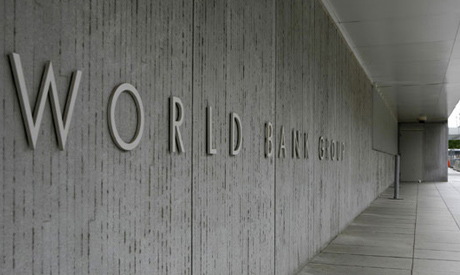
World Bank (Photo: Reuters)
The World Bank, through the International Finance Corporation (IFC) — its financial arm — is in talks with Egypt’s sovereign wealth fund (SWF) to partner in a number of projects that the fund is offering to the private sector for investing, according to Walid Labadi, the IFC’s Country Manager for Egypt, Libya, and Yemen.
Labadi’s statements came as an answer to Ahram Online’s questions during a virtual round table the World Bank held on Sunday on the role that Egypt’s SWF can play in boosting private sector investments in the Egyptian market.
The roundtable was held to discuss the World Bank’s new report on creating markets in Egypt that focus on realising the full potential of a productive private sector in the country.
Labadi also noted that opening state-owned companies to private investments is a critical action towards Egypt’s growth, adding that applying this thinking to companies affiliated with the Egyptian Army will provide them with opportunities for growth.
In his answer to Ahram Online’s question about the finances that the IFC has provided Egypt with since the onset of the pandemic, Labadi revealed that the IFC has extended a total of $400 million since March to support the private sector, including small and medium-sized enterprises and the health sector, in addition to cooperating with Egypt’s Financial Regulatory Authority to issue Egypt’s first of its kind green bonds.
He added that supporting the private sector will create more jobs, especially with the significant loss of jobs and wages that all countries have witnessed due to the pandemic, including Egypt.
He also clarified that the IFC invested a total of $307 million in Egypt during FY2019/2020, which ended in June 2020, adding that the IFC’s total investments in the market exceed $4 billion, which is the largest in the Middle East and North Africa.
Moreover, IFC’s portfolio in Egypt is the fifth highest of any country in the world, according to Labadi.
Labadi also underscored the sectors that are promising and expected to witness an upturn in the Egyptian market in the post-COVID-19 phase, which include trade and logistics, value chain, green finance, and healthcare.
Meanwhile, Marina Wes, World Bank Country Director for Egypt, Yemen, and Djibouti, said that Egypt needs to preserve the macroeconomic gains that it attained under its successful economic reform programme as well as create and enable the environment for the private sector.
She also added that the country should support the development of human capital for the sake of fostering its economy in order to unlock its full potentials, in addition to continuing to improve social conditions.
“All these actions will help Egypt recover from the pandemic better,” said Wes.
Wes praised the actions and measures that Egypt has adopted to contain the COVID-19 outbreak and its associated repercussions, adding that Egypt’s economy is at a crossroads now and 2021 may continue to be a difficult year amid the pandemic.
Short link: